- Home
- Gerald Hammond
The Curse of the Cockers (Three Oaks Book 5) Page 2
The Curse of the Cockers (Three Oaks Book 5) Read online
Page 2
‘The same to you,’ said a voice which I couldn’t place, a man’s. ‘Is that Mr Cunningham?’
‘Yes.’
‘Mrs Kitts asked me to phone you. There’s been an accident. Would one of you go down, please? It’s just the far side of the village from you.’
Beth had her ear close to mine. She grabbed the phone from me. ‘It isn’t Henry, is it?’
‘I’m afraid I don’t know any more than that,’ said the voice. The connection was broken.
I flipped back the bedclothes but Beth was out before me. ‘Oh no you don’t,’ she said. ‘I’ll go. I’m not having you wandering about in the cold and dark.’
‘I could take the car.’
‘You’re over the breathalyser limit by now. And if you go on foot you’ll probably get drawn into a ceilidh in somebody’s house and end up catching your death. I’ll take the car and go and see what’s happened.’
‘We’ll both go.’
‘You’re staying where you are.’
There is no arguing with Beth when she uses that tone of voice. I relaxed against the pillows. I must have been very tired because, despite my anxiety, I remember nothing between hearing her drive off and feeling a cold body snuggle up against me for warmth.
I managed a small interrogatory grunt.
‘They’re both all right,’ she said. ‘I’ll tell you in the morning. Nothing for us to worry about.’
*
Small sounds woke me. The cheerful singing and a crunch of footsteps below the window came from Daffy, already busy with the endless tasks of feeding and cleaning. I opened my eyes. The slurping sound was Sam, sucking greedily at his breakfast bottle. Beth, in her pink dressing-gown, could have been a teenager tending her baby brother.
‘Was I dreaming last night?’ I asked her.
‘No. There really was an accident. But Henry and Isobel weren’t involved, except as witnesses.’ There was no hint of reproach for my callous sleeping. Beth knows and approves of nature’s way of protecting me from any stress that might set back my recovery. ‘A man was knocked down in the road, the other side of the village. It was a hit-and-run. They saw it happen. And we have a visitor.’
I was becoming aware of another sound, a shrill yipping from somewhere downstairs. ‘What on earth’s that noise?’ I asked.
‘That’s the visitor.’ Sam had lost interest in his bottle. Beth turned him round to her shoulder and began patting his back. ‘A cocker spaniel pup. He came out of the hedge near the accident. Presumably he belonged to the dead man. Isobel didn’t trust the police to look after him properly. That’s why she phoned. And I think the police were glad to be able to dump him on us for now. I’ve given him a basket in the surgery for the moment. We don’t know what shots he has or hasn’t had. He certainly isn’t old enough to have had all of them.’
‘The accident was fatal, was it? You said “dead”. We’ll have to contact the relatives and find out what they want done with him.’ I rolled over and sat up. ‘Time I was moving.’
‘You’ll find everything for your breakfast beside the stove.’
I got out of bed and wished Sam a happy New Year. My clothes had been warming on the radiator. As I dressed, we could hear Daffy returning. She was singing to the tune of ‘Just My Bill’, always a sign that she had enjoyed herself the previous night. We could not make out the words, which may have been just as well. Daffy was in the habit of relieving the boredom and at the same time signifying her rebellion against all symbols of her previous existence by putting new and sometimes ribald words to the songs that she associated with home life.
Beth and I often pick up each other’s thoughts. ‘Rex is never known as Bill, is he?’ she asked suddenly.
‘It’s what the builder said to me when he brought his account,’ I said. ‘“Just my bill.”’
Beth shook with half-suppressed laughter and as I left the room I heard Sam give vent to an enormous burp. ‘Good boy,’ said Beth. I thought that it would be only a few years before we were trying to teach him not to make that sort of noise.
On my way to the kitchen I detoured to the surgery. This was no more than a small room which had been tiled and equipped so that Isobel, who had begun her working life as a vet, could deal with accidents or infection among our stock.
The yipping stopped as I opened the door. An all-black cocker puppy of about eight weeks was sitting in too large a basket in the corner. He lowered his head and looked at me anxiously. There were a puddle and several messes on the tiled floor. I picked him up. No collar or other identification and no signs of serious injury although two neat stitches had been put in a small cut between his toes. He was a good weight, considering the smallness of the breed, although his stomach felt empty.
Nobody would have given Daffy any orders about him yet. To the tune of renewed yelping, I went to the kitchen and mixed some puppy meal with warm milk. The noise cut off as I re-entered the surgery and when I put the bowl down he dived headfirst into the food.
I was finishing breakfast when Daffy came into the kitchen for more puppy meal. She seemed to have switched allegiance and was now singing ‘Come into the garden, Claud’. She still had the coloured stripe in her hair but otherwise, in Wellingtons and dungarees and without the surrealist makeup, she could have passed for a comparatively normal girl. We exchanged New Year greetings and I gave her the traditional dram of whisky. She shot it down her throat with an ease which no young girl should have acquired at her age.
When I mentioned the newcomer, she nodded. ‘I was going to ask you about him.’
‘I’ve just fed him. I don’t suppose he’ll be here for long. For the moment, try him on about two-thirds of the diet we give a weaning springer. He can live in the surgery for now. We’re a bit short of isolation kennels.’
She cocked her head and listened to the cries of loneliness and despair from the surgery. ‘The noise will drive you mad,’ she said. ‘But it’s no skin off my nose. I can’t hear him from my room.’
If she had been in her room, I thought, it could only have been to change her clothes. She had the bruised but complacent look of a woman who has not spent the night in innocent slumber. ‘Then he’ll have to get used to the great outdoors,’ I said. ‘He won’t take kindly to that. He can’t have been away from his dam for more than a few days at the most. But that’s his problem. If he wakes Sam in the night, we’ll none of us get any sleep.’
Daffy paused at the door, with her pan of steaming meal resting on her hip. ‘It would take the hound of the Baskervilles to waken Sam, once he’s got off,’ she said. ‘You heard about the accident last night?’
‘That’s where the pup came from,’ I told her. ‘He seems to have been with the man who was knocked down. Mrs Kitts was on the scene. She was roped in as a witness. She got somebody to phone us and Beth went to collect the pup.’
‘I think we’d just passed him in the road before it happened,’ Daffy said. ‘We hoofed out to first-foot Rex’s gran and on the way back we passed a man. It was dark, but from the sound of his footsteps he was good and pissed.
‘Then, just as we reached the lights of the village, we crossed with Mr and Mrs Kitts on their way home. We heard some noises a minute or two later but we just thought it was somebody buggering about. We heard about the accident later, from Rex’s dad. I suppose he staggered out in front of a car. I’d better go, or this meal will be cold.’
As she lugged her burden out, I was treated to the rest of her invitation to the mythical Claud. If Daffy was still with us when Sam reached the age of imitation, she would have to be taught to whistle.
*
Like most other Scots, we had given ourselves and the dogs a bit of a rest between Christmas and the New Year, but it was time to settle to work before Daffy decided that if she was doing the lion’s share of the work she deserved the lion’s share of the money. I wrapped up warmly against the day and went outside.
Three owners had left young dogs with us for training and I
gave each of those an individual workout with the whistle and a dummy launcher in an adjoining field before turning my attention to our own stock.
The Spaniel Championships were imminent and we were running two dogs. Lob (short for Lobelia) had qualified to run and, with one success already to her name, we hoped for another, to bring her to Field Trial Champion status. Rowan, bought in as a pup from a good strain to introduce new blood, had already gained that distinction through his wins in open trials, but a good result at the championships would enhance his demand and fees at stud. I fetched a gun, some blanks, and some live cartridges and took them in turn to the Moss.
Sam, well tucked into blankets, was in his pram in the garden by the time that that exercise was finished and Beth, one eye on the pram, was busy with another of her self-imposed duties, tidying the garden. Daffy had finished the first round of chores and, for the brief interval before the younger pups had to be fed again, she joined me in exercising and giving elementary training to the younger stock.
When we broke for lunch, there was still no sign of Isobel. This was unusual but not unexpected. As the senior partner – in years at least – she allowed herself occasional latitude; and she and Henry, both bibulous by nature, were inclined to look on Hogmanay through the bottom of a glass.
Daffy had caught Beth’s habit of treating me as a delicate invalid. They ganged up on me and made me nurse Sam in one of the basket chairs in the kitchen while Beth prepared his feed and Daffy made a quick meal. I sometimes found this excess of matriarchy galling but I refused to feel smothered by it. On the many occasions when I was below par, it was a relief to know that I could rest and recuperate without being made to feel I was shirking. Sam was his usual sunny self but determined to get a good grip on my nose. It was not what I had envisaged as a father and son relationship, but it would do for a start.
Isobel arrived twenty minutes later, looking distinctly frayed, and uttered the customary New Year greeting. We responded with rather more conviction. Daffy, whose manners were better than her style, got up at once. ‘Have you had lunch?’ she asked.
Isobel kissed all four of us before dropping into the vacated chair. ‘Not to notice,’ she said. ‘In fact, I haven’t even had breakfast.’
‘You’re our First-Foot,’ I told her. ‘If you don’t count Daffy—’
‘There’s no certainty that she could count as high as one at the moment,’ Daffy said.
‘—So you’ll take a dram?’
Isobel gave a ladylike shudder. ‘Perhaps in a year or two . . .’
Beth, who had bolted her own snack in order to take Sam for a feed and change, looked up. ‘Oh dear. You didn’t drive?’ she said.
‘I’m not daft,’ Isobel said. She and Henry lived a mile or two beyond the village, so she often walked over. ‘I’d probably still send the breathalyser off the dial.’ There was a pause while she tasted her own mouth and seemed to find it less than satisfactory. ‘If Sam’s left you any milk to spare,’ she told Daffy, ‘I might manage cereal and coffee with plenty of sugar.’
Daffy put a bowl, milk, a packet of cornflakes, and the sugar basin in front of her. ‘You seemed all right when Rex and I left the hotel,’ she said.
Isobel laughed without amusement. ‘That was then. We hung on until midnight, when the late licence ran out. We sang “Auld Lang Syne”, shook hands with friends and strangers alike, and set off. We’d only walked a minute or two when . . . Did I tell you about the accident?’
‘You got somebody to phone us,’ Beth said. ‘I came down to collect the pup.’
Isobel swallowed a mouthful of sweetened cereal and shuddered again. ‘God, I’d forgotten about the pup,’ she said. ‘Yet my memory’s fairly clear at that stage. We’d left the pub and turned for home. There’s wasn’t much light, the moon was hidden by cloud, but we could hear that somebody was walking ahead of us. We heard a vehicle behind us so we stepped onto the verge and cowered in the hedge while a Land-Rover went by, accelerating hard. We had a glimpse of the man, the other pedestrian, in the headlamps. He showed up clearly, sort of frozen in time. He seemed twisted, as though he was trying to jump out of the way but couldn’t make up his mind which way to go, and I saw him give a sort of wave. The Land-Rover jigged both ways as though the man’s antics had confused the driver. Then there was a thump and we saw the man turn a complete somersault. The Land-Rover slowed and then went off in a hurry.’
‘You didn’t recognize it?’ I asked.
‘No. It was a short-chassis Land-Rover, common as muck around here. I think it was the usual olive green but I couldn’t swear to it. By the time the accident happened, it was too far off to read numberplates.’ Isobel bolted the rest of her cereal. ‘I think I may live now,’ she said. ‘If you can call it living.’
‘We’d just crossed with you,’ Daffy said. ‘We’d seen in the New Year with Rex’s grandmother. We called to you. Do you remember that?’
‘Of course I do, I think,’ Isobel said indignantly.
‘We saw a Land-Rover leave the village,’ Daffy said. ‘We’d no reason to notice it particularly, except that he seemed to be in a bit of a hurry. If it was the same one, I’d agree with you that it was the usual green.’
‘Colours look different under street-lamps,’ I pointed out.
‘You had a better look at it than we did,’ Isobel told Daffy. ‘You’d better go and talk to the police.
‘Anyway, we hurried to where the man was lying. Henry still had a torch with him although the old fool seems to have lost the good pigskin gloves I gave him for Christmas. I stayed with the man while Henry dashed back to the police station, as near as he can come to dashing these days. Not that there was much I could do for the victim. If he wasn’t already dead he was on the way out. I think his neck was broken.’
Isobel tasted her coffee, added more sugar, and drank again.
‘You’re sure you couldn’t manage a hair of the dog?’ I asked her.
She shook her head, gently. Isobel has her own regime for the day after. ‘I could manage it but I couldn’t keep it down. I might accept a shandy in about half an hour’s time,’ she said.
‘But who was it?’ Beth asked. ‘He was already in the ambulance by the time I got there. Not anybody we knew?’
‘I doubt it. I saw him for the first time in the bar that evening. You probably noticed him, too. But that doesn’t constitute knowing. He was a jolly-looking man but there was something sly about him. He was quite smart in a new checked tweed sports jacket, but he needed a shave. And he was on the scrounge for free drinks.’
‘Around fifty years old?’ I asked.
‘Forty to fifty.’
‘We certainly did notice him,’ I said. ‘Before you turned up, he attached himself to us for a few minutes and chatted on about nothing at all in an accent that was supposed to be refined but which had definite overtones of either Dundee or Glasgow. He bummed a whisky off me and then moved on before we were ready for another round.’
Isobel nodded, with more confidence. ‘I saw him doing the same at several other tables. He was having a high old time without ever putting his hand in his pocket,’ she said. ‘By the time he left, he could hardly find his own coat. And he was only just outside the door when I heard him cry out. I thought that he’d slipped and fallen, but by then I’d decided that he wasn’t the sort of man you rush to help.’
Beth had finished with the now comatose Sam. She put him into his pram. ‘But what about the puppy?’ she asked.
As if in reply, the pup must have woken. The shrill yipping from the surgery resumed.
‘I know that voice,’ Isobel said. ‘I heard it when Henry went off to fetch help. I’d heard it earlier but my mind was taken up with the accident victim and I’d put it down to a rabbit caught by a stoat or something. But when I realized that the man was past helping I also realized that the noise certainly wasn’t coming from a wounded rabbit. Henry had left me the torch and I shone it towards the hedge and there was the little begg
ar sitting and yipping. It—’
‘He,’ I said.
‘He, then. I wasn’t much concerned with gender at the time. He stopped when I picked him up and when Henry came back we put him – the pup,’ she explained carefully, ‘into his, Henry’s, pocket and he, the pup, settled down peacefully. Probably hasn’t been away from his dam and siblings for more than a matter of hours and doesn’t like being alone. It’s a very common reaction.’
‘Nobody knew whether the pup belonged to the dead man or not, but Henry’s pocket didn’t seem to be the best place for him and Henry wasn’t keen to have his coat pulled out of shape and his pocket piddled in. It looked as though we’d be kept hanging around for ever. General opinion was that the best place for him until somebody turned up to claim him would be here, so I got the first passer-by to phone you.
‘The local bobby checked by radio with Cupar and nobody had reported a puppy lost. He was as considerate as he could reasonably be and we got home by about two, fired with good intentions of going straight to bed. But those idiots, the Caldwells, saw our lights on and decided to come first-footing. Before we could get rid of them, two more couples turned up, bringing bottles and other goodies. The party went on until breakfast time. I’m getting too old for that sort of thing,’ Isobel added peevishly.
Nobody dared to comment.
Daffy was mixing another bowl of meal for the young puppies’ midday feed. She took a dish through to the surgery and came back. The yipping was cut off. ‘That puppy couldn’t have belonged to the deady,’ she said. ‘Drunk or sober, he wouldn’t have been jay-walking an expensive pup at midnight on a public road without a collar or lead, not unless he was bloody daft.’
‘He could have been carrying him home,’ Isobel said. ‘Perhaps he’d just bought him.’
‘Who from?’ said Beth. ‘There hasn’t been a litter of cockers around here for at least a year, maybe two. It’s more likely that he had the pup in the car and decided that he’d go for a walk until he was sober enough to drive.’

 Home to Roost
Home to Roost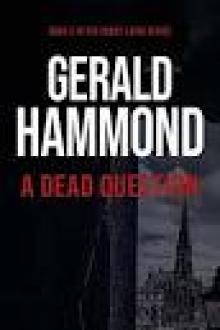 A Dead Question
A Dead Question Twice Bitten
Twice Bitten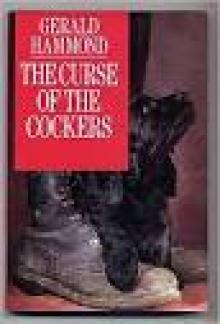 The Curse of the Cockers
The Curse of the Cockers In Loving Memory
In Loving Memory Illegal Tender (Three Oaks Book 12)
Illegal Tender (Three Oaks Book 12) Cold Relations (Honey Laird Book 1)
Cold Relations (Honey Laird Book 1)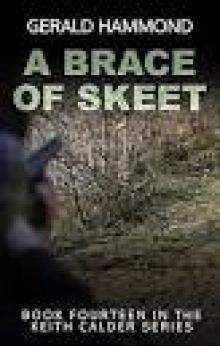 A Brace of Skeet
A Brace of Skeet Silver City Scandal
Silver City Scandal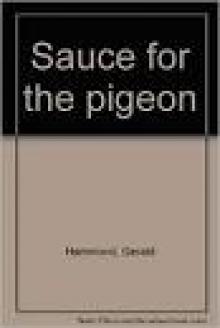 Sauce For the Pigeon
Sauce For the Pigeon Cold Relations
Cold Relations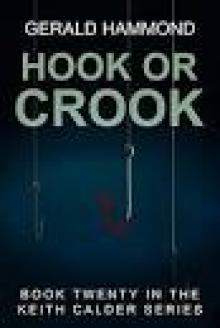 Hook or Crook
Hook or Crook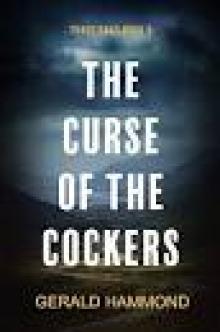 The Curse of the Cockers (Three Oaks Book 5)
The Curse of the Cockers (Three Oaks Book 5)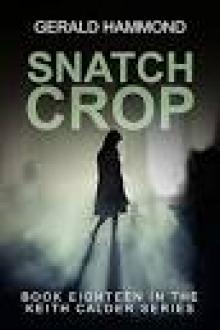 Snatch Crop
Snatch Crop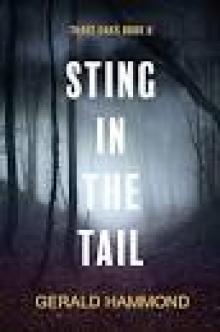 Sting in the Tail (Three Oaks Book 6)
Sting in the Tail (Three Oaks Book 6)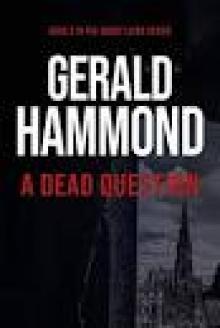 A Dead Question (Honey Laird Book 2)
A Dead Question (Honey Laird Book 2)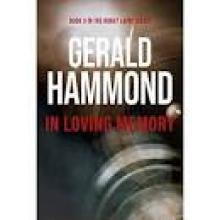 In Loving Memory (Honey Laird Book 3)
In Loving Memory (Honey Laird Book 3) Thin Air
Thin Air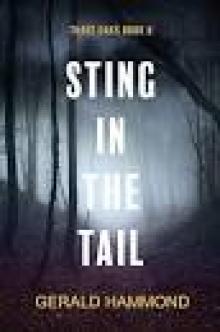 Sting in the Tail
Sting in the Tail Pursuit of Arms
Pursuit of Arms The Game
The Game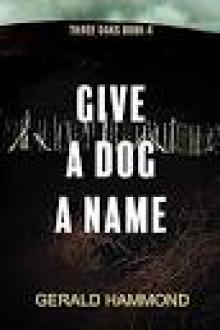 Give a Dog a Name (Three Oaks Book 4)
Give a Dog a Name (Three Oaks Book 4) Fair Game
Fair Game The Executor (Keith Calder Book 10)
The Executor (Keith Calder Book 10) Whose Dog Are You? (Three Oaks Book 2)
Whose Dog Are You? (Three Oaks Book 2)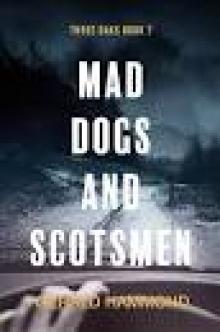 Mad Dogs and Scotsmen (Three Oaks Book 7)
Mad Dogs and Scotsmen (Three Oaks Book 7) Cousin Once Removed
Cousin Once Removed The Worried Widow
The Worried Widow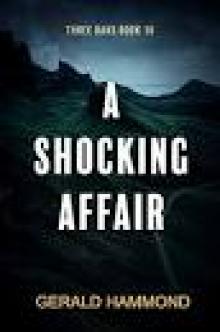 A Shocking Affair
A Shocking Affair Dead Weight (Three Oaks Book 11)
Dead Weight (Three Oaks Book 11) Whose Dog Are You
Whose Dog Are You The Revenge Game
The Revenge Game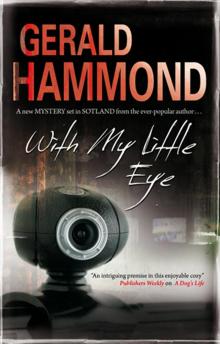 With My Little Eye
With My Little Eye Doghouse (Three Oaks Book 3)
Doghouse (Three Oaks Book 3)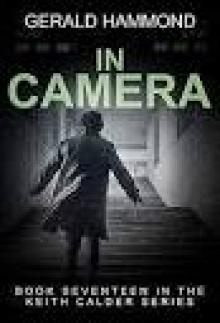 In Camera
In Camera Bloodlines (Three Oaks Book 8)
Bloodlines (Three Oaks Book 8)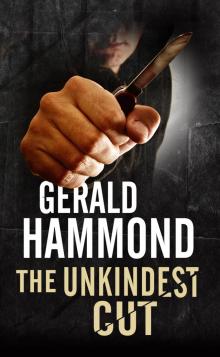 The Unkindest Cut
The Unkindest Cut